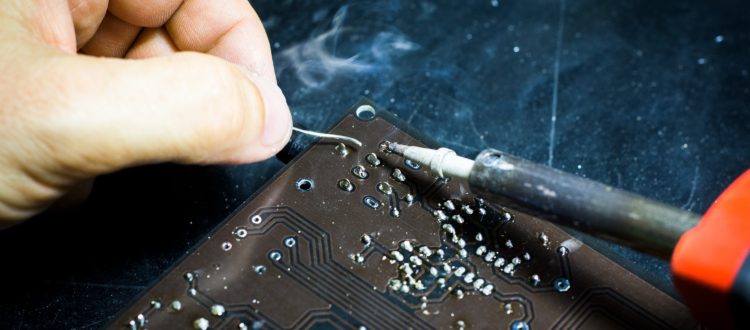Mid-Year PCB and EMS North American M&A Update

Mergers and acquisitions in North America in the PCB and EMS sectors during the first eight months of 2022 were down compared to the same period in 2021. In the PCB sector, we counted four deals in 2022 compared to seven during the first eight months of 2021. In the EMS sector, we are aware of 10 completed deals so far in 2022 compared to 13 during the same period in 2021. Activity remains very strong in 2022, so it is possible that deals this year will catch up to the pace of last year.
In the North American PCB sector, Ampel led the charge with two deals: the acquisitions of US Circuit and Rocky Mountain Circuits. In addition, Sierra Circuits acquired Electrotek and Summit Interconnect acquired Royal Circuits. Summit also shows up on the EMS side with the acquisition of Royal’s sister company, Advanced Assembly. Both Royal and Advanced are focused on commercial prototypes and quick turns.
On the EMS side, some of the major deals so far in 2022 were:
- East-West Manufacturing acquired Texas and Mexico facilities of Compass Electronics (Jan 2022). East-West itself was acquired by the private equity firm MSD Partners (Michael Dell’s firm) in February.
- Naprotek (owned by private equity firm Edgewater Capital Partners) acquired NexLogic (Jan 2022) and MicroFab (Aug 2022)
- Intervala acquired EPE (Feb 2022)
- Katek acquired SigmaPoint Technologies (Canada) (April 2022)
- Summit Interconnect (owned by PE firm Lyndsey Goldberg) acquired Advanced Assembly (May 2022)
- Zollner acquired the EMS division of EIT (July 2022)
- American Pacific Group (PE firm) acquired Concisys (Aug 2022)
Notably, both private equity and European companies have been active in 2022, which continues the trend from previous years. Conversely, North American public companies and Asian buyers have not been active, which also continues a trend from previous years.
Helping the positive trends for the M&A environment are the availability of capital for deals (including capital from PE firms), low (but increasing) interest rates, a good overall economy, the retirement age of many owners, strong backlogs, and a general move toward reshoring. Although it is too early for the CHIPS and Science Act to have a direct effect, the increased investment by the U.S. government in the semiconductor industry is expected to boost both domestic PCB and EMS companies.
On the negative side, one of the biggest obstacles for deals is the continuing headaches of COVID, cost increases, the component shortage, and labor shortage. The situation in Ukraine seems to have dampened activity somewhat, although European companies are still active. The stronger dollar will make acquisitions more expensive for foreign firms.
On the PCB side, there are fewer and fewer North American PCB shops to buy; our count is about 170 companies, of which probably only 150 are active. Of the active shops, around 100 have less than $10 million in annual revenue. For many buyers who are PE-backed or based overseas (and therefore looking for larger deals), the field of potential targets is becoming more limited. EMS companies in North America are much more numerous, probably in the 700 to 800 range, so there are many more potential targets than in the PCB sector. Similar to Summit’s acquisition of Advanced Assembly, many PCB shops have moved into the EMS space or are considering getting into assemblies. In addition to PCB assemblies and box builds, EMS companies have an even larger pool of potential acquisition targets if they consider design services, cable assemblies/wire harnesses, microelectronics, and other assembly-related products and services.
We have noticed that more EMS companies are a bit stuck in a box: sales and backlog are up, but inventory, WIP, and debt are up too. Market multiples have not increased to the level that would justify a high enough valuation to cover the increased working capital. The company may be making good profits, but valuations are not compelling enough for the owner to sell. It may be a somewhat comfortable, fur-lined box, but a box nevertheless.
It is possible that the actual number of deals is higher, but many deals among smaller shops are never announced and are hard to track. Also, we expect that there are plenty of smaller acquisitions by individuals or management teams that are not announced publicly.
Although the deal count is down so far in 2022, the activity level remains very high. With a good push, now that we are all back from summer vacation, perhaps we can catch up to the deal level of previous years.
Tom Kastner is the president of GP Ventures, an investment banking firm focused on sell-side and buy-side transactions in the tech and electronics industries. GP Ventures has offices in Chicago and Tokyo. Tom Kastner is a registered representative of and securities transactions are conducted through StillPoint Capital, LLC—a Tampa, Florida, member of FINRA and SIPC. StillPoint Capital is not affiliated with GP Ventures.
